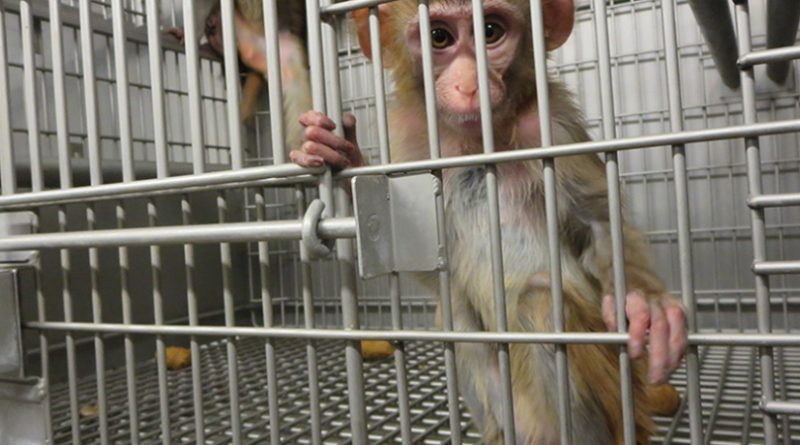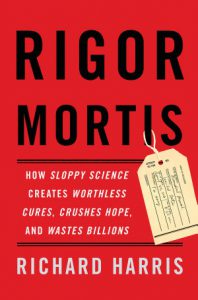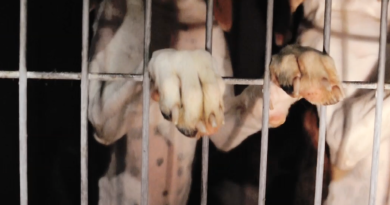Review of Book “Rigor Mortis: How Sloppy Science Creates Worthless Cures, Crushes Hope and Wastes Billions”
Review by ADAV Scientific Advisor, Dr. Andre Menache
As an experienced science journalist, Richard Harris has done a good job of exposing many of the reasons why so much biomedical research, and sometimes clinical research, is unreliable. This “sloppy science” in his words, “creates worthless cures, crushes hope, and wastes billions”.
The aim of this book review is to focus on aspects of animal-based research discussed in the book, rather than cover the entire content. Harris provides several examples of the weaknesses and failures inherent in animal-based research but does not join the dots to reach a clear conclusion. The reason behind this may be because he does not want to knock the establishment more than necessary, or simply because he lacks the critical knowledge required to notice the elephant in the room. Harris is a science journalist, not an evolutionary biologist.
Following are some of the examples in the book that point a finger at animal-based research :
- There are 235 ways scientists can fool themselves by unconsciously biasing their studies (page 41).
- New research that showed mouse data do not apply to humans was rejected by several science journals on the grounds that: “If this paper is published it will set the field [of mouse research] back 10 or 20 years … Clearly the old guard will suffer with a paradigm change, and sometimes their whole career will go away (pages 50, 51).
- “Misleading animal studies have led to billions of dollars’ worth of wasted effort and dead ends in the search for drugs. Failures in animal studies have also had deadly consequences” (page 71).
- Harris quotes a researcher who continues to use animals as saying: “The animal models are a disaster… I worry not just that they might be wrong … but what if the neurodegenerative disease models (ALS and Alzheimer’s) are not wrong but irrelevant? Irrelevant is much worse than wrong. Because irrelevance sends you in the wrong direction” (page 82).
- One of the scientists interviewed in the book provides a key clue to why a treatment that appears to work in an animal subsequently fails in humans. “Evolution has created so many redundant [backup] systems that targeting a single pathway in a complex network will rarely work” (page 89).
Overall, the book is a missed opportunity for not exposing animal-based research for the scientific fraud that it represents, given our current understanding of complex systems and evolutionary biology. Harris appears to support the idea that animal-based research can be improved by adhering to strict guidelines related to methodology. The real reason that animal studies fail is because they are not predictive of the way in which humans respond to drugs and disease. Increasing the number of animals used in a study is not the answer to the problem. Instead, what is required is a major overhaul of a research paradigm that is out of date with current scientific knowledge.
Dr Ray Greek and I have addressed this very point by publishing “Systematic Reviews of Animal Models: Methodology versus Epistemology” – http://www.medsci.org/v10p0206.htm.
For CBC Radio’s discussion with the author, click here.





